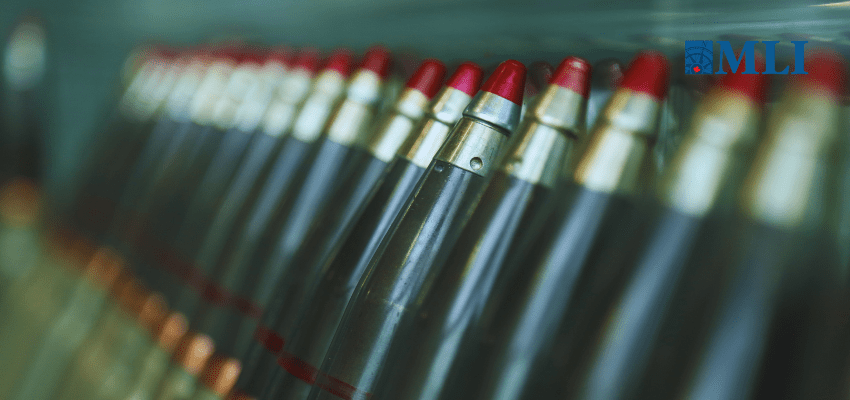This article originally appeared in the Strategist.
By William Winberg and Stephen Nagy, August 23, 2024
NATO and its four Indo-Pacific partners should cooperate and coordinate to ease a munitions shortage by increasing production of basic supplies, such as artillery shells, and further easing rules that restrict trade in more sophisticated weapons. Cooperative action is all the more necessary as support for Ukraine empties ammunition stocks and as NATO and its Indo-Pacific friends look warily at the risks of wars erupting simultaneously.
Russia’s full-scale assault on Ukraine since 2022 has made clear to NATO, Japan, South Korea and others that their post-Cold War demilitarisation and reduced capacity for production of ammunition and weapons have left them vulnerable.
NATO’s four Indo-Pacific partners are Australia, Japan, New Zealand and South Korea, collectively called the IP4 (and until recently known as the Asia-Pacific partners, or AP4). The grouping is loose and informal and based on shared geopolitical outlooks. The AP4 countries have all responded firmly against the war in Ukraine and are making efforts to limit Russia’s aggression that are laudable, given their distance from the conflict. They also share similar interests in their own region, with Australia, New Zealand and South Korea supporting Japan’s ambition for a Free and Open Indo-Pacific.
NATO and the IP4 need a more thorough platform of coordination and cooperation on key security matters. This is particularly important, because there are no plans for an Indo-Pacific alliance in the style of NATO. The most pressing issue is munitions production, in which the IP4 countries severely lag behind adversaries in the region: China, Iran, North Korea and Russia. Not only would the IP4 be able to support each other; they could also expect reciprocal help from NATO members.
Amid the shortage of supplies, making basic ammunition is an obvious opportunity for cooperation. Scarcity is so dire that NATO states have been unable to send Ukraine all that it needs, and even the EU has allocated funds to double annual shell production among its members. This may still not be enough to counter Russia’s robust war economy.
So NATO members and the IP4 must intensify efforts. It is in their mutual interest to increase cooperation, especially on munitions and arms that are not subject to such tight export restrictions and secrecy requirements as advanced weaponry is. Meanwhile, for the long term, easing restrictions between like-minded countries for transfers of more advanced weaponry, such as air defense systems, may be especially important for the Indo-Pacific region.
Among the many lessons of the war in Ukraine is that conventional artillery is still important in land warfare. Ukraine urgently needs more artillery and ammunition for it. A similar situation could emerge on the Korean peninsula if the truce that has endured since the end of the Korean War broke.
Meanwhile, Russian aerial bombardment of Ukrainian cities has destroyed critical infrastructure. Defense systems, such as the US Patriot surface-to-air missile system, have been both crucial and scarce. This would also be an issue in a conflict in the Taiwan Strait or elsewhere in China’s vicinity and could make or break defensive efforts.
Japan has eased its restrictive export regime to indirectly supply Ukraine with domestically made Patriot systems. It is also considering easing restrictions on exporting explosives needed for artillery shells. Australia is likewise looking to increase its defense production over the long term, including missile development cooperation with the US. South Korea has increased its arms exports to Europe, and sees the trend continuing. New Zealand is small and has a very limited defence industry, but its potential, could be used optimally by coordinating with NATO and the rest of the IP4.
William Winberg is a PhD Candidate at the International Christian University and an intern for the Yokosuka Council of Asia-Pacific Studies.
Stephen Nagy is a professor at the Department of Politics and International Studies at the International Christian University and a Senior Fellow at the Macdonald-Laurier Institute.






